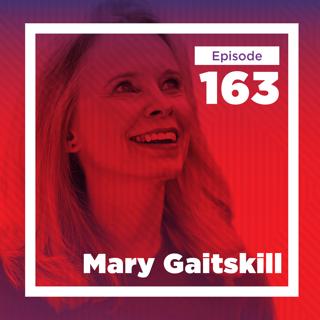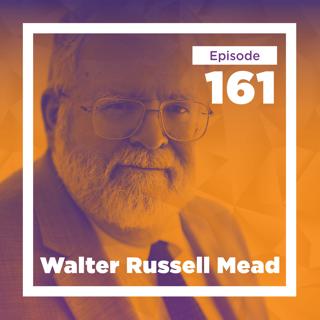
John Adams on Composing and Creative Freedom
Is classical music dying? For John Adams the answer is an emphatic no. Considered by Tyler to be America’s greatest living composer, he may well be one of the people responsible for keeping it alive. John’s contemporary classical music is some of the most regularly performed and he is well-known for his historically themed operas such as Nixon in China, Doctor Atomic, and most recently Antony and Cleopatra. He is also a conductor and author of, in Tyler’s words, a “thoughtful and substantive” autobiography. He joined Tyler to discuss why architects have it easier than opera composers, what drew him to the story of Antony and Cleopatra, why he prefers great popular music to the classical tradition, the “memory spaces” he uses to compose, the role of Christianity in his work, the anxiety of influence, the unusual life of Charles Ives, the relationship between the availability and appreciation of music, how contemporary music got a bad rap, his favorite Bob Dylan album, why he doesn’t think San Francisco was crucial to his success, why he doesn’t believe classical music is dead or even dying, his fascination with Oppenheimer, the problem with film composing, his letter to Leonard Bernstein, what he’s doing next, and more. Read a full transcript enhanced with helpful links. Recorded September 14th, 2022 Support the podcast by making a donation during this holiday season! Other ways to connect Follow us on Twitter and Instagram Follow Tyler on Twitter Email us: cowenconvos@mercatus.gmu.edu Subscribe at our newsletter page to have the latest Conversations with Tyler news sent straight to your inbox.
14 Joulu 202245min

Jeremy Grantham on Investing in Green Tech
When it comes to fighting climate change Jeremy Grantham is optimistic about technology – but worried about timing. Known widely for his acuity in identifying bubbles, the British investor contends that the one created by our dependence on fossil fuels is about to pop. He’s on a mission to make green energy cheaper, faster and is well on his way. After a lifetime spent thinking about resources, he’s using his to power the development of green technology. The Grantham Foundation has invested into 45 early-stage green projects, such as improving the efficiency of lithium extraction. He joined Tyler to discuss the most binding constraint on the green transition, why we need an alternative to lithium, the important message sent by Biden’s Inflation Reduction Act, the marginal cost basis of green energy, the topsoil crisis in the Midwest, why estimates of the cost of global warming vastly underestimate its effects, why he distrusts economists, the overpricing concentrated in the US stock market, the consequences of Brexit, the revolutionary tactics of Margaret Thatcher, how his grandparents shaped his worldview, why he’s optimistic about American venture capital, the secret to Boston’s success in asset management, how COVID changed his media diet, the political difficulty of passing carbon taxes, and more. Read a full transcript enhanced with helpful links, or watch the full video. Recorded September 1st, 2022 Check out our new Conversations with Tyler merch here at mercatusmerch.com, and use the promo code UNDERRATED for 10% off! Other ways to connect Follow us on Twitter and Instagram Follow Tyler on Twitter Email us: cowenconvos@mercatus.gmu.edu Subscribe at our newsletter page to have the latest Conversations with Tyler news sent straight to your inbox.
30 Marras 202240min

Ken Burns on the Complications of History
When it comes to history—particularly American history—nothing is ever definitive, says documentarian Ken Burns. Much of his work has focused on capturing that history in film, but in his new book, Our America: A Photographic History, his goal is to share the complexity of his country as well as honor those roots in still images. From the very first photograph, a self-portrait, to our modern inundation with selfies, he tells “the story of us” – a story of darkness and light, just as in the photographic process itself. Ken joined Tyler to discuss how facial expressions in photos have changed over time, where in the American past he’d like to visit most, the courage of staying in place, how he feels about intellectual property law, the ethical considerations of displaying violent imagery, why women were so prominent in the early history of American photography, the mysteries in his quilt collection, the most underrated American painter, why crossword puzzles are akin to a cup of coffee, why baseball won’t die out, the future of documentary-making, and more. Read a full transcript enhanced with helpful links, or watch the full video. Recorded November 1st, 2022 Check out our new Conversations with Tyler merch here at mercatusmerch.com, and use the promo code UNDERRATED for 10% off! Other ways to connect Follow us on Twitter and Instagram Follow Tyler on Twitter Follow Ken on Twitter Email us: cowenconvos@mercatus.gmu.edu Subscribe at our newsletter page to have the latest Conversations with Tyler news sent straight to your inbox. Photo credit: Michael Avedon
16 Marras 202252min

Mary Gaitskill on Subjects That Are Vexing Everybody
Mary Gaitskill’s knack for writing about the social and physical world with unapologetic clarity has led to her style being described both as "cold and brutal” and “tender and compassionate.” Tyler considers her works The Mare, Veronica, and Lost Cat to be some of the best and most insightful American fiction in recent times. And lately she’s taken to writing essays on Substack, where she frankly analyzes “subjects that are vexing everybody,” including incels, Depp v. Heard, and political fiction. She joined Tyler to discuss the reasons some people seem to choose to be unhappy, why she writes about oddballs, the fragility of personality, how she’s developed her natural knack for describing the physical world, why we’re better off just accepting that people are horrible, her advice for troubled teenagers, why she wouldn’t clone a lost cat, the benefits and drawbacks of writing online, what she’s learned from writing a Substack, what gets lost in Kubrick’s adaptation of Lolita, the not-so-subtle eroticism of Victorian novels, the ground rules for writing about other people, how creative writing programs are harming (some) writers, what she learned about men when working as a stripper, how her views of sexual permissiveness have changed since the ‘90s, how college students have changed over time, what she learned working at The Strand bookstore, and more. Read a full transcript enhanced with helpful links. Recorded September 26th, 2022 Other ways to connect Follow us on Twitter and Instagram Follow Tyler on Twitter Email us: cowenconvos@mercatus.gmu.edu Subscribe at our newsletter page to have the latest Conversations with Tyler news sent straight to your inbox.
2 Marras 202245min

Reza Aslan on Martyrdom, Islam, and Revolution
Reza Aslan doesn’t mind being called a pantheist. In his own “roundabout spiritual journey” and study of the world’s religions, which has led him to write books on Islam, the life of Jesus Christ, God, and most recently an American martyr in Persia, he has come to believe the Sufi notion that religion is just a shell one must break through to truly understand God—and that if God is anything at all, then all is God. He joined Tyler to discuss Shi’a and Christian notions of martyrdom, the heroism of Howard Baskerville, the differences between Sunni and Shi’a Islam, esoteric vs. exoteric expressions of religion, how mystical movements arise more organically than religion, the conflicts over Imams in the Islamic world, how his upbringing as an Iranian immigrant shaped his view of religion, his roundabout spiritual journey, the synthesis of Spinoza and Sufism, the origins of Wahhabism, the relationship (or lackthereof) between religion and political philosophy, the sad repetition of history in Iran, his favorite Iranian movie, and more. Read a full transcript enhanced with helpful links, or watch the full video. Recorded October 12th, 2022 Other ways to connect Follow us on Twitter and Instagram Follow Tyler on Twitter Follow Reza on Twitter Email us: cowenconvos@mercatus.gmu.edu Subscribe at our newsletter page to have the latest Conversations with Tyler news sent straight to your inbox.
19 Loka 202253min

Walter Russell Mead on the Past and Future of American Foreign Policy
A leading expert in foreign policy, Walter Russell Mead believes his lack of a PhD—and interest in actually going places—has helped him avoid academic silos and institutional groupthink that’s rendered the field ineffective for decades. Mead’s latest book, which explores the American-Israeli relationship, is characteristically wide-ranging and multidisciplinary, resulting in “less a history of U.S.-Israel policy than a sweeping and masterfully told history of U.S. foreign policy in general”, according to a New York Times review. He joined Tyler to discuss how the decline of American religiosity has influenced US foreign policy, which American presidents best and least understood the Middle East, the shrewd reasons Stalin supported Israel, the Saudi secret to political stability, the fate of Pakistan, the most likely scenario for China moving on Taiwan, the gun pointed at the head of German business, the US’s “murderous fetishization of ideology over reality” in Sub-Saharan Africa, the inherent weakness in having a foreign policy establishment dominated by academics, what he learned from attending the Groton School, and much more. Read a full transcript enhanced with helpful links, or watch the full video. Recorded August 31st, 2022 Other ways to connect Follow us on Twitter and Instagram Follow Tyler on Twitter Follow Walter on Twitter Email us: cowenconvos@mercatus.gmu.edu Subscribe at our newsletter page to have the latest Conversations with Tyler news sent straight to your inbox.
5 Loka 202251min

Byron Auguste On Rewiring the U.S. Labor Market
When looking at the U.S. labor market, Byron Auguste sees too many job seekers screened out based on shallow signals like a bachelor’s degree, and too few ‘screened in’ by directly demonstrating the skills needed for the job at hand. To close those opportunity gaps in the American workforce, Byron co-founded and runs Opportunity@Work, which played a key role in Maryland’s decision in early 2022 to drop four-year degree requirements for thousands of state jobs in favor of recruiting from those identified as being Skilled Through Alternate Routes, or STARs. He joined Tyler to discuss workforce training in the digital economy, re-evaluating college degree requirements in recruitment, why IQ is overrated and conscientiousness is underrated, the major opportunity gap in on-the-job training, what people miss about the German apprenticeship model, the best novel about finding a job, what’s gone wrong with American men, why we need signal pluralism for higher education admission, why he’s wary of AI for predicting labor outcomes, what happened when Maryland rolled back degree requirements for state jobs, the incentive problems in higher education, and more. Read a full transcript enhanced with helpful links, or watch the full video. Recorded September 6th, 2022 Other ways to connect Follow us on Twitter and Instagram Follow Tyler on Twitter Follow Byron on Twitter Email us: cowenconvos@mercatus.gmu.edu Subscribe at our newsletter page to have the latest Conversations with Tyler news sent straight to your inbox.
21 Syys 202254min

Vaughn Smith on Life as a Hyperpolyglot
Vaughn Smith is fluent in eight languages but with a beginner’s grasp of at least thirty-six (and counting). His talents are so remarkable that the Washington Post did a feature story on him and neuroscientists at MIT requested he do a brain scan for them. But for Vaughn his language skills aren’t about attracting attention or monetary gain. “Language is a key to someone's culture, to someone's world,” he explains. Whether it’s watching a client’s face light up when he speaks to them in their native tongue or showing Indigenous children in rural Mexico that their language is valuable and worth preserving, Vaughn views his gifts as a way of connecting with other people. He joined Tyler to discuss how he began learning languages, the best languages for expressing humor, why he curses in Slovak, why he considers Finnish more romantic than Portugese, what makes Hungarian so difficult to learn, the best way to teach people new languages, how to combat language loss, why he’d like rural Mexicans to have more pride in their culture and way of life, his time as a roadie for a punk rock van, the most rewarding job he’s had, why he wants to visit Finland, how enjoying films from different eras is similar to learning new languages, the future of English, and more. Read a full transcript enhanced with helpful links, or watch the full video. Recorded May 26th, 2022 Other ways to connect Follow us on Twitter and Instagram Follow Tyler on Twitter Email us: cowenconvos@mercatus.gmu.edu Subscribe at our newsletter page to have the latest Conversations with Tyler news sent straight to your inbox.
7 Syys 202249min






















